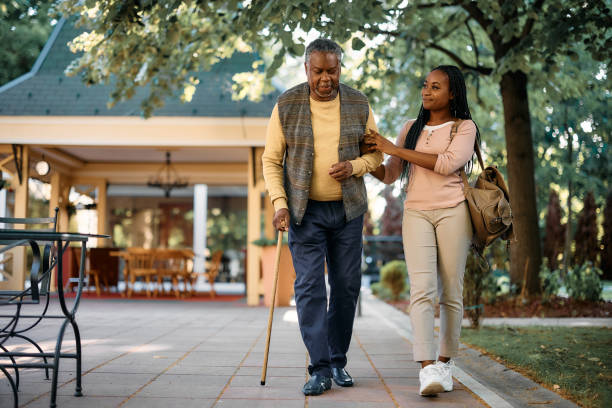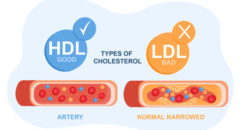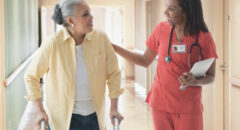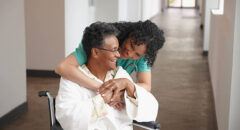
Post-stroke mobility loss can lead to difficulty walking after a stroke and having to learn to walk again. Check out this post about regaining balance and mobility and how long it takes to walk after a stroke.
Within minutes, a stroke can ravage your brain, potentially robbing you of a world of skills that, until now, you’ve taken entirely for granted. Among the precious things you may lose is the ability to walk — at least at the beginning.
“It was frustrating and scary. I couldn’t stand or move,” recalls Melanie Goldberg*, who suffered her stroke at the age of 52. “Basically you want to be independent and take care of yourself,” Goldberg says. “But the staff had to help me onto a commode or into a wheelchair.”
Loss of mobility is just one of the effects a stroke can have. Post-stroke paralysis can require physical therapy or rehab to regain mobility and balance. Due to a stroke’s major physical effects and recovery timeline, it is important to recognize warning stroke signs.
Why is walking affected by a stroke?
The majority of strokes injure the motor fibers connected to movement. Typically, strokes damage portions of one side of the brain and affect the opposite side of the body. A stroke can make one side of the body weak or paralyzed, making it difficult or impossible to walk. A stroke patient may also experience a complete lack of sensation in parts of the body.
“When you put your foot on the floor, you can feel it. They can’t,” explains Jen Aanestad, a physical therapy supervisor at St. Francis Memorial Hospital Acute Rehabilitation Center in San Francisco. “If you can’t feel where your foot is in space, that’s a huge deficit.”
A patient’s balance may also be shaky, if the cerebellum — the part of the brain that controls equilibrium — is injured. And along with the paralysis, weakness, numbness, and loss of balance, many stroke patients are left with distorted perceptions about where the body ends. “They don’t have an idea that the affected part of their body exists anymore,” says Aanestad.
Damage to the optic nerve, for example, can shrink one’s field of vision, so that a stroke survivor may see only half of their body when they look in the mirror. Interestingly, the other half of the body will come into view if the head is turned the other way, but patients often have to remind themselves to turn so they can “find” that half in the mirror.
Injury to the motor portion of the brain can also diminish muscle tone and control, another obstacle to walking. Muscles can lose the ability to contract altogether or, on the contrary, become overly contracted and too rigid to allow a simple walking motion.
Physical effects of a stroke that impact balance/coordination/mobility/walking:
- Muscle weakness/paralysis
- Foot drop
- Fatigue/tiredness
- Pain due to damage to tissues/nerves
- Spacticity
- Contractures
- Changes in sensation
Can a person walk again after a stroke?
After a stroke, most patients can walk again within the first six months or, in cases where mobility has been severely compromised, within the first two years. According to experts, the likelihood of regaining function after a stroke increases with the intensity of rehabilitation.
How long does it take to walk again after a stroke?
The majority of improvements happen within the first six months of the initial stroke. For stroke survivors who suffer from








